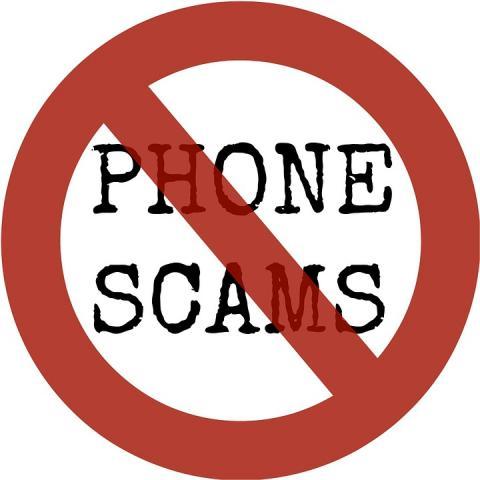The United States Citizenship and Immigration Services (USCIS) identified the "Imposter Calls" scam back in September 2016. Given the value international students place on their immigration status and the current climate towards immigration generally, immigrants are being targeted because they often feel a necessity to pay the demanded monies.
The below information was obtained and copied directly from the USCIS' website.
Here’s How the "Imposter Calls" Scam Works
A number appears on your caller ID that may look like a legitimate government number. When you answer, the person on the phone poses as a USCIS or other government official or law enforcement officer. The scammer (or scammers) will say that there is a problem with your application or additional information is required to continue the immigration process. Then, they will often ask for sensitive personal and financial information, demand payment, and threaten you with deportation, arrest, or other negative consequences if you do not comply.
The scammer will then order victims to make a payment - and will often order them to go to a nearby bank or store and withdraw money or purchase a prepaid card, gift card, voucher, money order or make some other wire transfer, money exchange, payment or withdrawal.
(Note that the scammers are often able to direct victims to nearby banks or stores by using online maps to study the area in which a victim resides.)
If you receive a call like that, hang up immediately and report it!
USCIS will never ask for any form of payment over the phone or in an email. If payment is needed, they will mail a letter on official stationery requesting payment. Do not give payment over the phone to anyone who claims to be a USCIS official. In general, you are encouraged to protect your personal information and not to provide details about your immigration application in any public area.
If you have been a victim of this telephone or email scam, please report it to the Federal Trade Commission at: http://1.usa.gov/1suOHSS. If you receive a suspicious email or voice message and are not sure if it is a scam, forward it to the USCIS webmaster at [email protected]. They will review the messages received and share with law enforcement agencies as appropriate. Visit the Avoid Scams Initiative at uscis.gov/avoidscams for more information on common scams and other important tips.
If you have a question about your immigration record, please call the National Customer Service Center at 800-375-5283 or make an InfoPass appointment at https://my.uscis.gov/appointment. You can also use myUSCIS to find up-to-date information about your application process. In a nutshell, if someone claiming to be a government official or law enforcement officer calls making threats such as deportation, beware, hang up, and report it!
If you find yourself the victim of such a scam and you have any questions, please do not hesitate to contact Student Legal Services.

